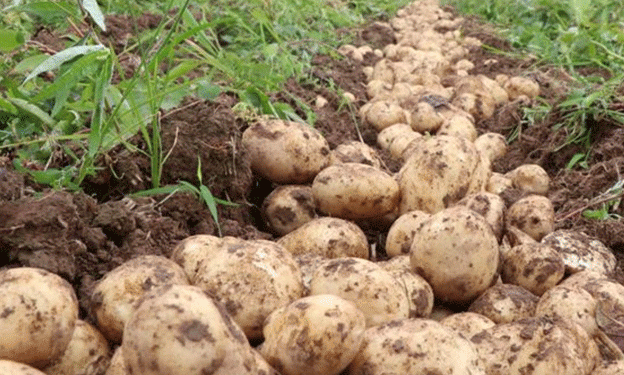Transforming Agriculture with Heat-Resilient Potatoes
As climate change intensifies, heat stress poses a significant threat to global crop yields. Scientists at the University of Illinois, in collaboration with the University of Essex, have achieved a breakthrough: heat-tolerant potato varieties capable of increasing yields by up to 30% under high-temperature conditions.
The Science Behind the Innovation
The success of this development lies in genetic enhancements that optimize photorespiration, a metabolic process that becomes less efficient at high temperatures. By introducing two genes, researchers modified the plant’s energy utilization, converting excess energy into growth. Field trials in Illinois demonstrated these enhanced potatoes’ potential to thrive under extreme heat.
Published in the prestigious journal Global Change Biology, the research has been described as a promising step toward climate-resilient agriculture. However, further trials across diverse regions are necessary to validate these findings under varying environmental conditions.
Meeting Future Food Demands
The research, led by Dr. Katherine Meacham-Hensold under the Ripe (Realizing Increased Photosynthetic Efficiency) program, is a strategic response to the growing global demand for food amidst climate change.
Dr. Meacham-Hensold emphasized the project’s broader implications:
“We must develop crops that can endure increasingly frequent and severe heatwaves to meet food demands in vulnerable regions affected by climate change.”
The 30% increase in potato tuber mass during field trials underscores the potential of genetic modifications to enhance photosynthesis and prepare crops for future challenges.
Broader Implications for Food Security
Dr. Amanda Cavanagh of the University of Essex highlighted the significance of this research for global food systems:
“Staple crops are at risk from climate change, and our study demonstrates that strategies to boost heat tolerance in model systems can translate to real-world crops.”
This innovation is particularly vital for regions most affected by climate change, where potatoes serve as a critical food source. Furthermore, it preserves the culinary and cultural traditions associated with potatoes, ensuring their place on dining tables worldwide.
Nutrition and Sustainability
Professor Don Ort, a plant biology expert and deputy director of the Ripe program, assured that the genetic modifications do not compromise nutritional quality:
“Food security isn’t just about calories; it’s also about maintaining food quality.”
The integration of heat-tolerant crops into agricultural systems can simultaneously address the dual challenges of production and nutrition, contributing to sustainable global food security.
The development of heat-tolerant potato varieties marks a significant advancement in climate-resilient agriculture. These innovations not only bolster food security but also mitigate the risks posed by rising temperatures. Continued research and collaboration are essential to scale this technology globally, ensuring it benefits farmers, consumers, and ecosystems alike.







